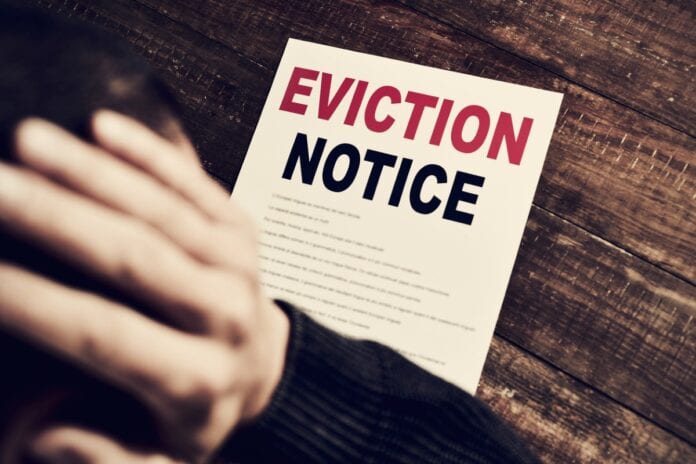The Covid-19 crisis has seen thousands of business premises lying empty for well over a year and has meant that thousands of companies have been struggling to pay their rent. With the easing of lockdown threatened by the outbreaks of new variants, the problem will only get worse for business owners if they are unable to re-open.
What is the legal position of businesses struggling to pay their rent and can landlords easily evict businesses for non-payment? Simon Roberts, Senior Associate Solicitor from DAS Law, tells you what you need to know…
I’m struggling to pay my rent and my landlord has threatened to evict me. What is the current legal position on business evictions during the pandemic?
If the commercial lease is still within a fixed term period, a landlord would only be able to end the tenancy before the expiry of the fixed term owing to non-payment of rent if the commercial lease had a forfeiture clause allowing the landlord to recover the property from the tenant immediately for the non-payment of rent.
However, the Coronavirus Act 2020 imposed on landlords a prohibition against being able to exercise forfeiture for non-payment of rent. This is currently in place until 30 June 2021. Forfeiture can also be used when a tenancy becomes a periodic tenancy outside of a fixed term period, but any forfeiture clause is still currently prohibited in the same way as above.
Can I challenge a business eviction notice under the current legal guidelines?
If a landlord has served a s25 Notice under the Landlord Tenant Act 1985, only when the landlord is seeking to deny the tenant a new lease on ground(b) persistent delay in pay rent that has become due, does the Coronavirus Act 2020 provide the tenant with any specific grounds to challenge. Section 82(11) of the Coronavirus Act 2020 provides that, for the purposes of determining whether Ground (b) is established, any failure to pay rent under the tenancy during the relevant period (whether the rent fell due before or in that period) is to be disregarded. The relevant period is currently 26 March 2020 to 30 June 2021.
The business has been doing badly due to Covid-19, how can I negotiate with my landlord?
If you feel the business is in a strong position to recover when covid related restrictions start to ease, then demonstrate this to the landlord. Put forward a realistic proposal to the landlord whereby any arrears can be paid back over a realistic period of time together with maintaining future rental payments. Ask for a rental holiday, or an agreed reduction in rent over an agreed period of time.
However, a landlord is unlikely to agree to either of the above where there is no intention for the shortfall to be repaid at some later point in time, but there is no harm in asking. Essentially there is not likely to be a long que of willing tenants waiting to take over premises should you be evicted, so convince the landlord it would probably be better to stick with you as a tenant in the long term.
Am I entitled to any financial help from the government?
Business rates relief is the main mode of financial assistance provided from the government to tenants. This is only available in specific business sectors such as shops, retail and hospitality to name a few. The relief is applied automatically by the local council a tenant pays business rates to. Any enquiries about business rates relief should therefore be directed to the local council.
Can my landlord increase the rent for my business premises?
A landlord of commercial premises is only able to increase the rent on a commercial lease if there is a rent review clause in the lease itself. If there is no written lease, or if the lease does not provide for a rent review then the landlord cannot increase the rent. Where a lease does contain a rent review clause the operation of this has not been restricted in any way by the coronavirus situation.
Disclaimer: This information is for general guidance regarding rights and responsibilities and is not formal legal advice as no lawyer-client relationship has been created. Note that the information was accurate at the time of publication but laws may have since changed.

| [donate]
| Help keep news FREE for our readersSupporting your local community newspaper/online news outlet is crucial now more than ever. If you believe in independent journalism,then consider making a valuable contribution by making a one-time or monthly donation. We operate in rural areas where providing unbiased news can be challenging. |




















